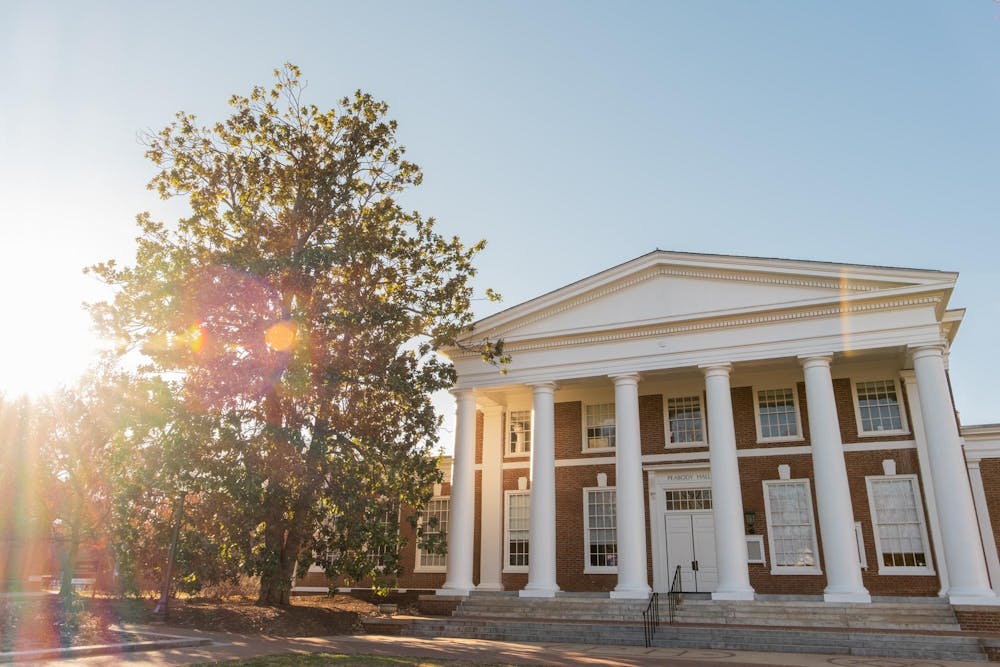In his guest editorial to The Cavalier Daily, Scott Douglas Gerber, an alumnus, argues that during former University President Jim Ryan’s tenure, the School of Law “likely” violated anti-discrimination law. His only evidence seems to be that when he looked at the “U.Va. Lawyer,” Law’s alumni magazine over the last decade, he saw a “disproportionate percentage of non-white males” who joined the faculty — that is, he did not see pictures of what he would consider a proportionate number of white men. He cites no evidence beyond the implied epithet “DEI hires” — no data, no review of qualifications and no comparisons with existing faculty or the evolving and expanding market for scholars of Law’s caliber. He seems to be saying, without factual support, that women and minorities cannot possibly be qualified to teach at the School of Law and that these recent hires reflect lowered standards that have harmed the quality of the education provided by Law’s faculty.
This is clearly wrong. During Jim Ryan’s tenure as University President, the School of Law jumped to the fourth best law school in the country, its highest ranking in history after being stagnant at around eight for decades. The fact is that in the last eight years, faculty quality improved across all relevant metrics — productivity counts increased, citation counts increased and paper downloads all increased. The School of Law faculty citations were middling before Ryan but they jumped to ninth during his presidency.
Moreover, as the School of Law increased the percentage of women in its entering classes — which it did at a pace well behind its top 10 counterparts — its LSAT median leaped three points, and its GPA numbers climbed. In 2025, the School of Law ranked first or in the top five on every Princeton Review ranking, on all the significant hiring and placement rankings and on clerkship placements with the U.S. Supreme Court and lower federal courts. The School of Law hired one of the leading theorists of Constitutional originalism in the country as well as the preeminent scholar in internet privacy — who is also a MacArthur genius-award winner. The School of Law has both an award-winning Black Law Students Association and an award-winning Federalist Society chapter, and it was not rocked by free speech scandals like many top 10 law schools.
The School of Law is the elite of the elite in legal education. It has access to the best faculty candidates in the world. And the best candidates come from a wide pool. Prior to Ryan’s tenure, during a stretch of about six years, the School of Law hired almost no women at all. At one point, out of twenty-four tenure-line new faculty hires, twenty-two were men and only two were women. Interestingly, there was no clamoring about discrimination then. Nor does there seem to be concern that tenured and tenure-track women continue to make up only about a third of the current Law’s faculty, even though the American Bar Association reports that women graduating with JDs have outnumbered men since 2016.
It seems clear to us that expanding the available pool of faculty and students has heightened the School of Law’s standards and dramatically improved the University. The argument being made for a return to the past in hiring or admissions seems to be an argument for a return to affirmative action for white men. This was the reality of the University before Virginia was forced by court order and federal civil rights enforcement to end the state-compelled racial and gender segregation of its universities.
Many University alumni alive today lived during the time when the University did not admit Black students or women — and when the School of Law had no women or minorities on its faculty. Perhaps some alumni want to return to those days — we do not know. What we do know is that those who argue for a return to the past do so without reference to the facts and without heeding the lessons of history.
This letter is signed by four University alumni and a professor Emeritus. Their names are listed below. They can be reached at opinion@cavalierdaily.com.
The opinions expressed in this guest letter are not necessarily those of The Cavalier Daily. The guest letter represents the views of the signatories alone.
Margaret Ann Brown, College Class of 1974 and 1977 School of Law alumna
Claire Guthrie Gastañaga, Class of 1974 School of Law alumna
James D. Moyer, Class of 1974 School of Law alumnus
Jonathan Cannon, Professor Emeritus of the School of Law
D. Ashbrooke Tullis, Esquire, College Class of 1989 alumna







